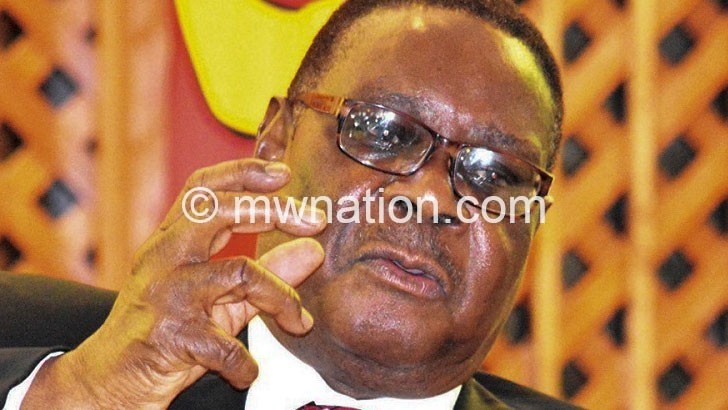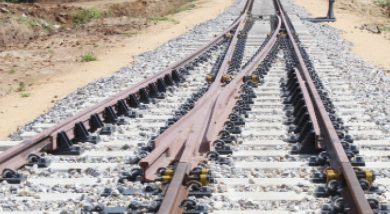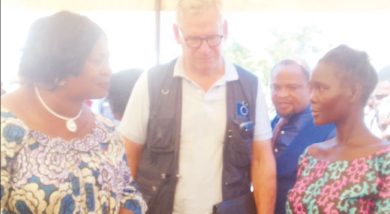DPP grapples with life without APM
As the Democratic Progressive Party (DPP) seeks a new strategic direction after a humiliating fresh presidential election loss, analysts say it must regroup urgently into an effective opposition force.
But while party leader Peter Mutharika—who lost by a 20-point margin to Tonse Alliance torchbearer Lazarus Chakwera—has indicated that he wants to lead a private life after the June 23 2020 poll, the party does not seem ready for life after Mutharika; at least not without him having a say on where the grouping heads from here.
In an interview on Monday, DPP vice-president (North) Goodall Gondwe said it was critical that the party reorganises itself, but it has to wait for direction from Mutharika.

Said Gondwe, a long time DPP finance minister during the party’s two separate regimes: “He [Mutharika] will tell us how he wants to organise things in the party. But I suspect that we will shortly reorganise ourselves into a more effective opposition political party. That’s what is going to happen soon.”
Other DPP gurus such as Uladi Mussa who is vice-president (Centre), regional governor (South) Charles Mchacha and regional governor (Centre) David Kambalame, declined to comment on the party’s future, referring The Nation to spokesperson Nicholas Dausi.
But Dausi asked for more time, saying: “This has just happened and I must consult the party leadership first. Let us also give him [Mutharika] time to arrange things.”
Mutharika’s plan to settle down as a private citizen could plunge the party into internal power struggles that might further weaken an already bruised party.
The power positioning already started flowering even when Mutharika was still State President and party leader.
On the other hand, his departure could provide an opening for DPP to deviate from the dynastic cycle where, since its inception in 2005, it has been run by the Mutharika brothers, starting with founder Bingu wa Mutharika, the late president.
Over the past months, Mutharika has repeatedly condemned political posturing in his party, telling respective ‘camps’ to stop canvassing for leadership and instead wait for a convention in 2023 when he would retire from politics and his successor chosen.
“You must exercise patience, love one another. Stop creating the camps and avoid this internal power struggle,” he said on January 26 2020 at Kamuzu International Airport in Lilongwe on arrival from official duties in the United Kingdom (UK).
Besides Mutharika, vice-president (South) Kondwani Nankhumwa also publicly denounced his fellow party members for spreading lies and fuelling infighting.
As Leader of Opposition in Parliament, Nankhumwa is now the face of DPP and its de facto leader.
Making his maiden speech as leader in Parliament yesterday, Nankhumwa urged party supporters to accept the fresh presidential election results and move forward.
But he is likely to face challenges to his leadership from fellow party heavy weights such as former Finance minister Joseph Mwanamvekha; DPP vice-president (East) Bright Msaka, and Everton Chimulirenji, Mutharika’s running mate in 2019.
Still, analysts believe DPP must lose the shadows of the Mutharikas and position the party for the post-Mutharika era.
Political scientist Master Dicks Mfune from Chancellor College—a constituent college of the University of Malawi (Unima)—said Mutharika’s exit from active politics is “long overdue” and would be “good riddance”.
Mfune, a peace process specialist, said Mutharika’s decision would help to cleanse the Malawian politics of dynasties.
He said the immediate solution to heal the DPP power struggle was to open up the presidency through a convention and let other aspirants contest.
Ernest Thindwa, another political scientist from Chancellor College, said he expected the DPP to struggle because, essentially, the country’s ruling parties are built around patronage resources which they siphon from the public purse.
“Former ruling parties always struggle after losing access to public resources because it becomes difficult for them to dispense patronage which they use to attract support,” he said.
But Thindwa was emphatic that the survival of the DPP and UDF was important for the country as they must be strong enough to provide checks and balances to the current Executive.
Should the DPP-UDF nexus maintain its numerical strength, the Chakwera-led administration is likely to meet intense scrutiny and resistance to its agenda.
As Parliament reconvened on Monday for the 2020/21 budget session, Chakwera’s nine-party member Tonse Alliance had fewer members of Parliament (MPs) compared to those of DPP and UDF who were also reinforced by majority of independent legislators.
Initially, the DPP won 62 seats during the May 21 2019 parliamentary election, but the High Court nullified three of its seats—Phalombe North East, Mangochi West and Mangochi North East—due to irregularities, thus decreasing its number to 59. But when added with those of UDF, the number surges to 67, with potential for some independent MPs to bolster the figure.
Similarly, Tonse Alliance will rely on the 55 MPs from MCP, five for Peoples Party (PP), four from UTM and Alliance for Democracy (Aford)’s one legislator.
However, the Tonse Alliance also has a bonus of independents that already jumped the blue ship to work with the former opposition alliance while more are also expected to switch allegiance towards the same.





